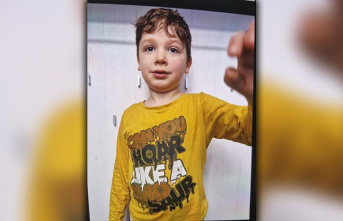The US Federal Reserve has announced an internal review after growing criticism in the wake of the biggest US banking collapse since the 2008 financial crisis. "The events surrounding Silicon Valley Bank call for a thorough, transparent and timely investigation," said Fed Chairman Jerome Powell on Monday after the US market closed.
The Fed Vice President Michael Barr, who was in charge of the investigation, added that the central bank must carefully examine how the finance house, which specializes in financing start-ups in the tech industry, was supervised and regulated. The Fed must show "humility" and see "what we can learn from this experience." A report on this should be published on May 1st.
collapse within a few days
The collapse of the Silicon Valley Bank, based in Santa Clara, California, which was the result of immense withdrawals of funds due to liquidity concerns, is putting the regional Fed branch in San Francisco in particular under pressure. The state's financial supervisory authorities also have to put up with critical questions after the financial institution collapsed within a few days last week.
The situation on the stock exchange remained tense at the beginning of the week. Shares in several US regional banks tumbled despite the Biden administration's emphasis on deposit safety. First Republic Bank fell 62 percent on Monday. Other small and medium-sized financial institutions also suffered heavy losses. Large institutions like JPMorgan Chase also fell, albeit less dramatically. Overall, Wall Street stabilized somewhat.
Biden: "Your deposits are safe"
The slump in the banking sector came despite President Joe Biden's administration making repeated attempts to reassure bank customers and stave off potential panic reactions. "Americans can rest easy, the banking system is safe. Your deposits are safe," Biden said Monday. Customers would have access to their savings at any time, the President assured.
However, unlike in the financial and banking crisis of 2008, taxpayers should not have to pay for deposit insurance this time, explained Biden. A fund that all banks pay into will take care of that. The White House has repeatedly emphasized that there are no parallels with the financial and banking crisis of 2008, when large financial institutions had to be rescued with taxpayers' money.
A new 2008?
Meanwhile, the discussion as to how a bank collapse could have happened again after 2008 is in full swing. Biden blamed his predecessor, Donald Trump. Under President Barack Obama, whose deputy was Biden, strict conditions were imposed so that the financial and banking crisis would not repeat itself, said Biden. Under Trump, some of these requirements were reduced.
Background: In 2018, the US Congress cleared the way for a repeal of essential parts of the so-called Dodd-Frank Act, which was intended to prevent renewed bank failures at the expense of taxpayers. Trump had promised the financial lobby to roll back the rules passed in 2010. Trump described the Dodd-Frank Act as a "disaster" that he would like to abolish altogether. That didn't happen, but for small and regional banks - which are now struggling - the conditions have been eased.
Biden announced that he intends to tighten the requirements for banks again and called on Congress to act. Whether there will be stricter laws is questionable. Republicans have had a majority in the House of Representatives since the beginning of the year. The majority of Democrats in the Senate is extremely narrow. A possible new law would have to be passed by both chambers of parliament.











